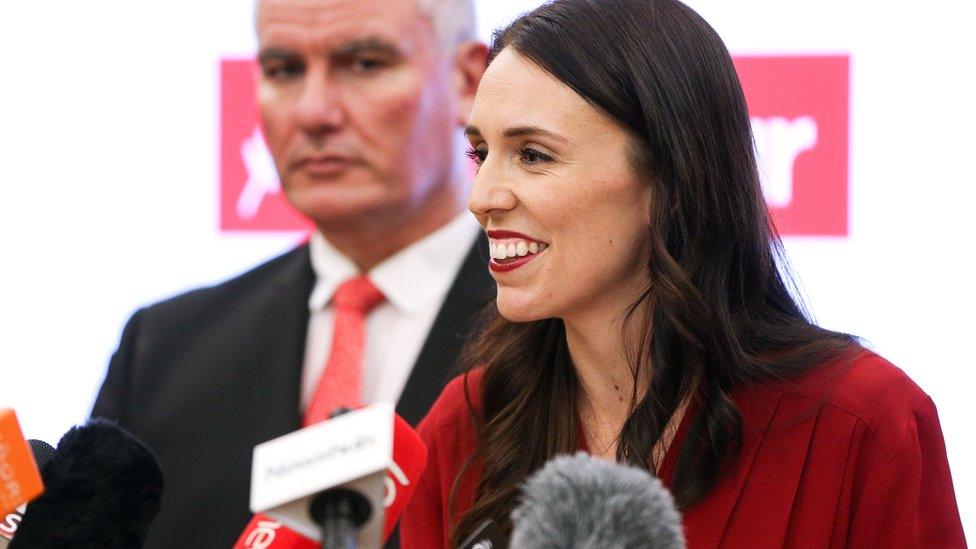Jacinda Ardern resigns: Departure reveals unique pressures on PM
- Published
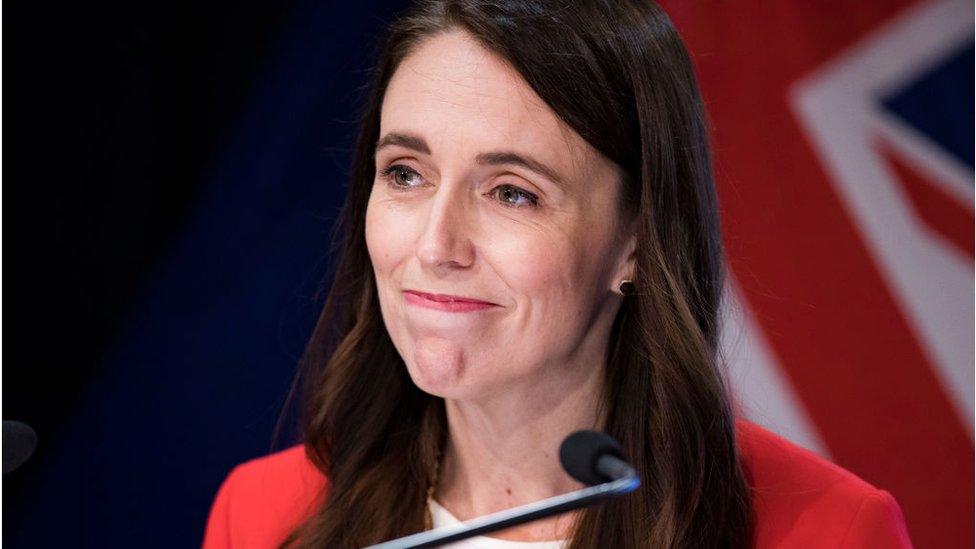
Ardern holds the rare position of being both a working mother and the leader of a country
For millions around the world, Jacinda Ardern's resignation comes as a shock - but some women will pore over her words with particular interest.
With her charm and leadership philosophy rooted in kindness, the New Zealand prime minister has earned widespread popularity. Many of her fans are women, who have avidly followed her journey from newbie PM to working mother and have looked up to her as a role model.
Ardern is not the only prominent figure to make the news in recent years for announcing a shock withdrawal because of burnout - others include athletes Naomi Osaka, Ash Barty and Virat Kohli; and bosses like James Packer.
But Ardern also holds that very rare position of being a working mother while leading a country. She gave birth while in office, only the second world leader to have done so after Pakistan's Benazir Bhutto.
In many ways, it was an extreme test case of balancing work and family. But there were clearly political factors at play as well.
Her resignation comes amid growing political headwinds, with her approval ratings falling as New Zealanders' concerns rise over living costs and crime rates.
It's always tough at the top, but Ardern's tenure has seen many challenges: steering the country through an unprecedented pandemic, a horrific domestic terror attack, and a volcanic eruption. Ardern noted in her speech on Thursday the "constant and weighty" decisions she faced.
She has also had to contend with intense public scrutiny throughout her journey, from announcing her pregnancy just months after taking office to her decision to take six weeks of maternity leave, which sparked debate on whether it was too short.
For a while, she appeared determined to tackle it head on.
"I always expected, given [Neve] is still so young and so small, that there would be a real tension there between making sure I was meeting all of her needs and of course my responsibilities. But I am confident with all of the support I'm very lucky to have, we will absolutely make it work," she told reporters at the time.
She was also happy to share her parenting travails on social media, from the struggle to bake the perfect birthday cake for her daughter, to finding a diaper cream stain on her jacket after spending the day in meetings.
But in the end, it was the human costs of high political office she cited in the most emotional part of her resignation speech.
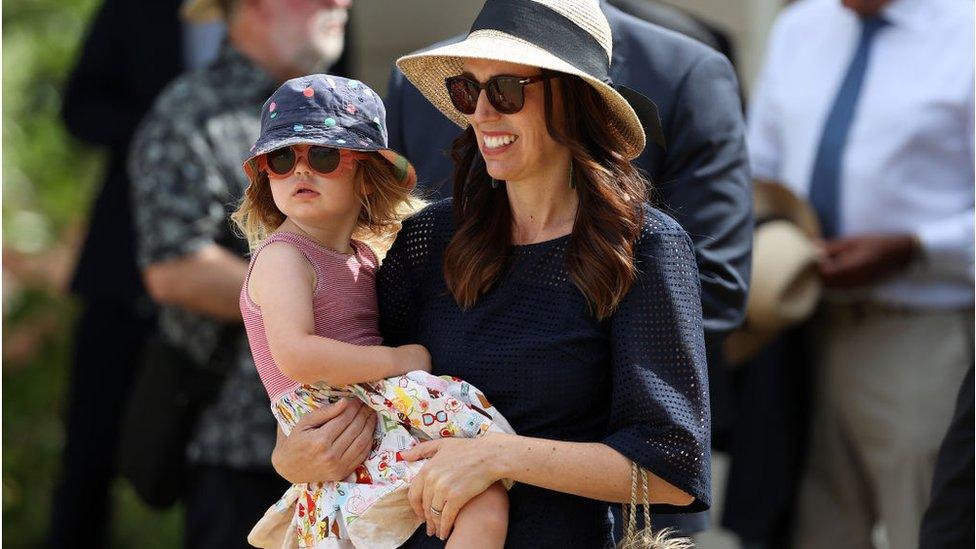
Ardern, who has a four-year-old daughter Neve, often shared about her travails as a working mum
"Politicians are human. We give all that we can, for as long as we can, and then it's time," Ardern said, her voice faltering. "And for me, it's time… I know what this job takes, and I know that I no longer have enough in the tank to do it justice."
She talked about how she wished to spend more time with her family as they had "sacrificed the most out of all of us". She said she looked forward to "being there" for her daughter when she begins school, and told her partner Clarke "let's finally get married".
Many had hoped to see her continue forging a path and will be disappointed that she could not go any further, but they will no doubt also have sympathy for her predicament.
There is, of course, a political calculation in her decision.
She has had a meteoric rise to power fuelled by "Jacinda-mania", but New Zealand's love affair with her has since soured as her government struggles to navigate post-pandemic economic challenges such as the rising cost of living and deepening social inequality..
Just weeks ago, her approval rating hit its lowest level since August 2017 - just before she became PM - as her Labour party also saw sliding popularity.
Despite her denials, Ardern's move can also be seen as a canny decision to save her party and avoid a personally humiliating defeat in the upcoming election as the incumbent PM. Some of her critics celebrating her exit even accuse her of using her burnout as an excuse to salvage what is left of her political reputation.
Regardless of whether this is burnout, or a walkout from a tricky political situation, or indeed both, some will inevitably see her departure as a powerful statement that it's important to set boundaries and respect personal limits.
Jacinda Ardern herself said in 2018: "I am by no means the first woman to multitask and in terms of being a woman in politics, there are plenty of women who carved a path and incrementally have led the way to be able to make it possible for people to look upon my time in leadership and think, yes, I can do the job and be a mother."
Jacinda Ardern resigns: ‘I no longer have enough in the tank’
Related topics
- Published19 January 2023
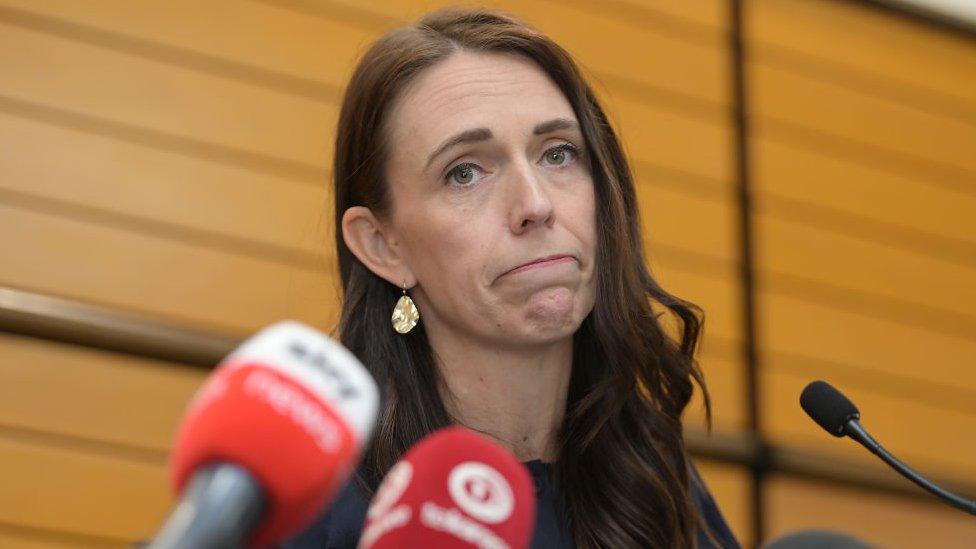
- Published19 January 2023
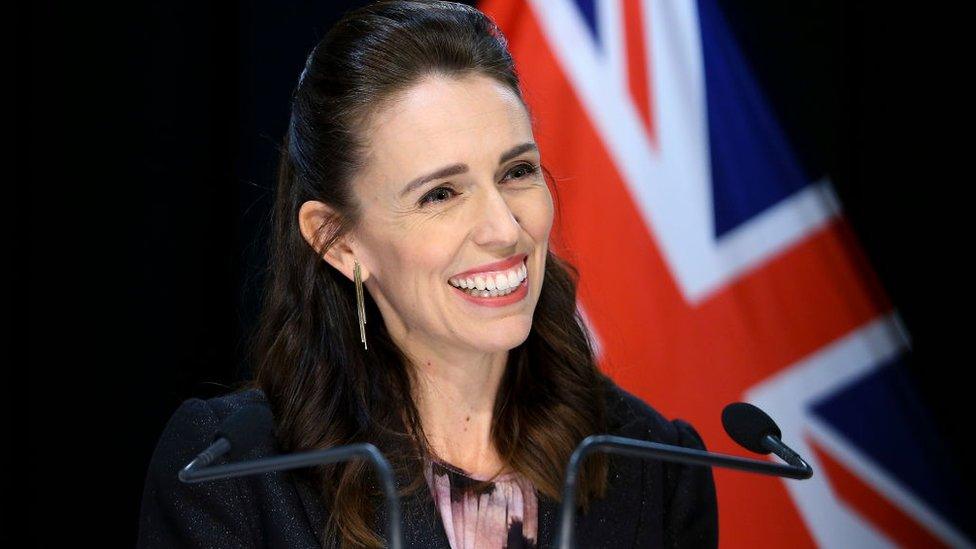
- Published19 January 2023
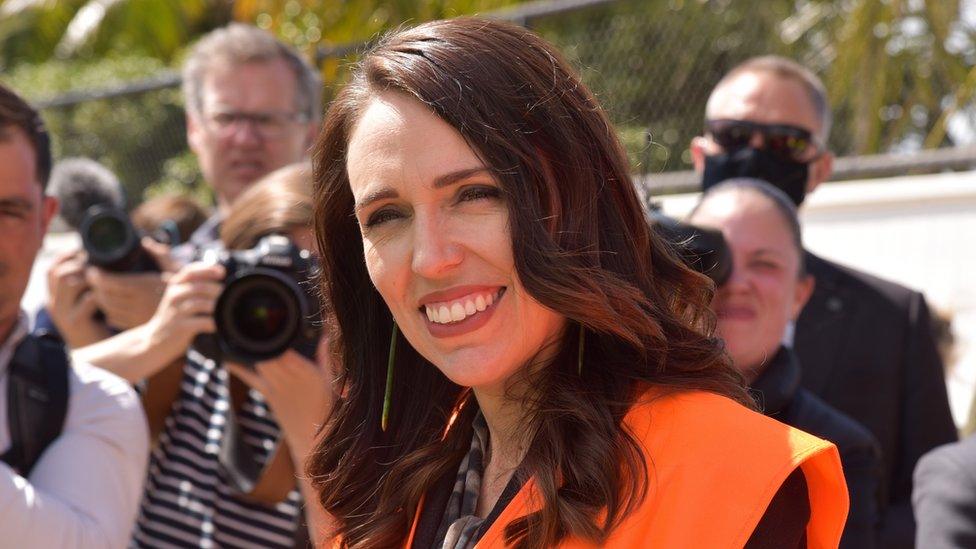
- Published15 October 2020
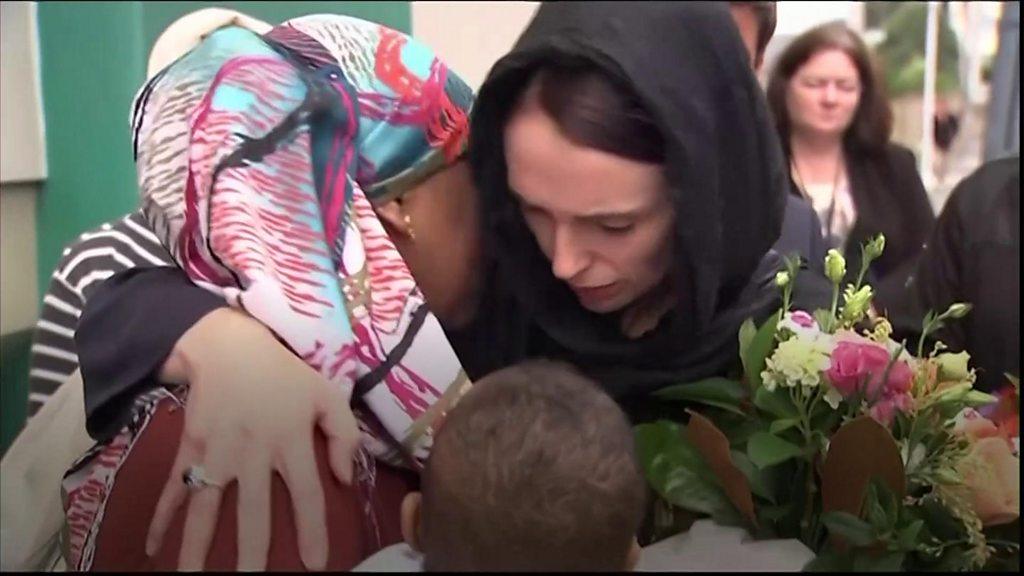
- Published13 October 2020
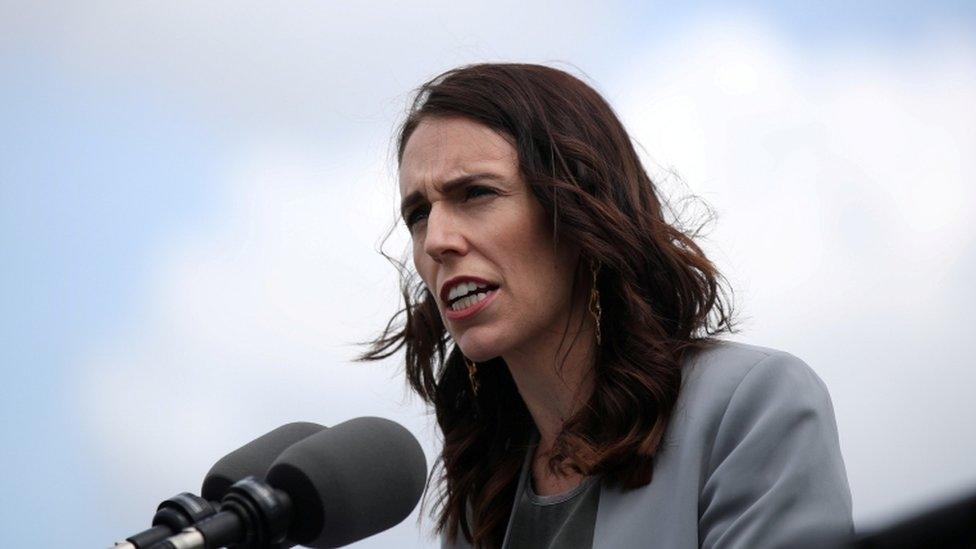
- Published19 October 2017
